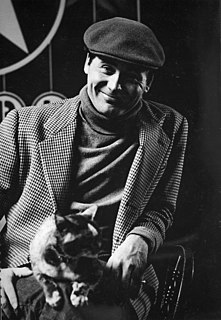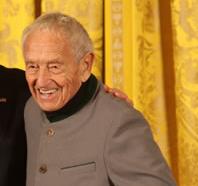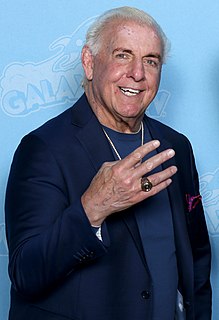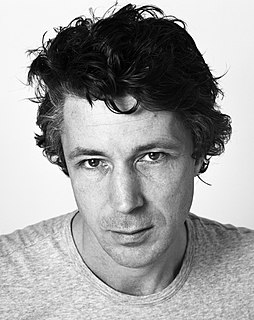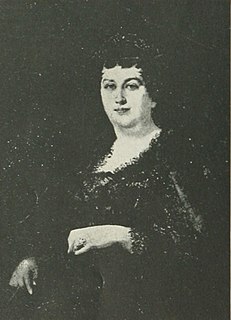A Quote by Elizabeth Barrett Browning
It is not merely the likeness which is precious... but the association and the sense of nearness involved in the thing... the fact of the very shadow of the person lying there fixed forever! It is the very sanctification of portraits I think - and it is not at all monstrous in me to say that I would rather have such a memorial of one I dearly loved, than the noblest Artist's work ever produced.
Related Quotes
The only thing you should have to do is find work you love to do. And I can't imagine living without having loved a person. A man, in my case. It could be a woman, but whatever. I think, what I always tell kids when they get out of class and ask, 'What should I do now?' I always say, 'Keep a low overhead. You're not going to make a lot of money.' And the next thing I say: 'Don't live with a person who doesn't respect your work.' That's the most important thing—that's more important than the money thing. I think those two things are very valuable pieces of information.
When I think about sanctification, a couple things immediately pop into my head. One is how slow it actually is. I think everybody wants the silver-bullet, the thing that makes sanctification move like a superhighway rather than the dirt path that it is. The other is that, by in large, the greatest single asset in ongoing sanctification is a serious pursuit of joy in the face of Jesus Christ.
We are, in fact, hyper-dimentional objects of some sort which cast a shadow into matter, and the shadow in matter is the body. And at death, what happens basically, is that the shadow withdraws, or the thing which cast the shadow withdraws, and metabolism ceases, and matter which had been organized into a dissipative structure in a very localized area, sustaining itself against entropy by cycling material in and degrading it and expelling it, that whole phenomenon ceases, but the thing which ordered it is not affected by that.
When I wrote the story ["The Cartographers"], I'd just gone through a breakup with a woman I'd loved dearly. Without this other person in my life, the memories we'd shared often felt like phantoms. Who was this person I once loved? Did she still really exist? The answer, on a metaphysical level, was that this person didn't still exist. She'd gone on to become a different person, an individual with new hopes and dreams which no longer involved me.
You would be surprised how many people that are very passionate about classical music are deeply involved in Hip Hop. You would think Jazz would be the natural associative, but it's extraordinary what kind of crossed-genre associations we are finding in digital media. And even as I'm talking about it, I find myself speaking very much more about how people are accessing that which, what I do, rather than me being preoccupied trying to market something that I do to them.
My parents deeply and truly loved each other, and if my mother hadn't died they would have been together forever. They were together for as much of forever as was given to them. They really loved my brother and me and were very good to us. It gave the model of how to have a happy marriage and family, but it also set the bar very high.
As we passed under a streetlamp I noticed, beside my own bobbing shadow, another great, leaping grotesquerie that had an uncanny suggestion of the frog world about it . . . judging from the shadow, it was soaring higher and more gaily than myself. 'Very well,' you will say, 'Why didn’t you turn around. That would be the scientific thing to do.' But let me tell you it is not done ? not on an empty road at midnight.
Make this decision today. Will you be a good and honest writer, or would you rather be famous, loved, noticed? Tell me, because there are different paths for these two divergent goals. The decision to be a true artist is lonelier and slower, but it will lead to better work and, I think, a better life. Very rarely you will be a good and honest writer and also know a little comfort and some attention and the well wishes of a crowd. This is very rare.
So-called reality TV, which dominates British channels, is destroying what made it cherishable to me and lots of others in the first place. I loved Alan Clarke, Ken Loach and Alan Bleasdale's work. In fact the first TV dramas I ever saw were 'Screen Twos' produced by David Thompson, who also produced a lot of Alan Clarke.
I think every filmmaker in Europe would be lying if they didn't say one day they just wanted to make a movie here in Hollywood or at least try it. It's very different from European filmmaking, because here it's like a real industry. It's very much about money and making money, which I think is fine, because it's very expensive to make movies.
I should say tact was worth much more than wealth as a road to leadership.... I mean that subtle apprehension which teaches a person how to do and say the right thing at the right time. It coexists with very ordinary qualities, and yet many great geniuses are without it. Of all human qualities I consider it the most convenient--not always the highest; yet I would rather have it than many more shining qualities.

